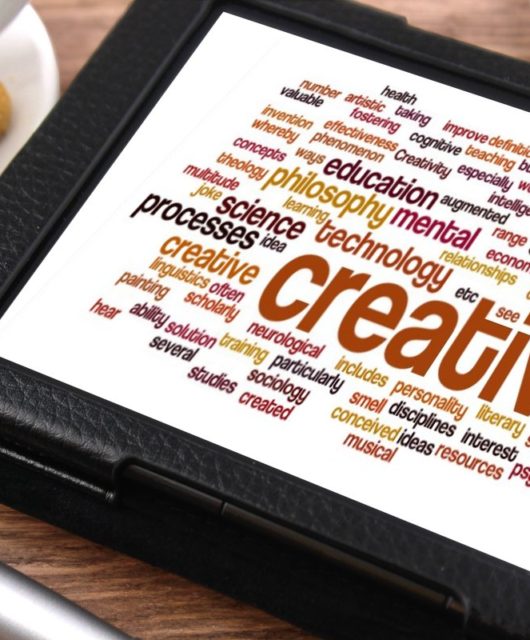HOW THE EDUCATION SYSTEM IS CHANGING
 Is the education system helping you learn? Previously, education systems revolved around a standard course outline, while professors only cared about finishing the course. More than making students learn, it tested their memory, following the concept of rote learning. In today’s world, we are witnessing rapid changes and growing demand, that present new challenges to our education systems.
Is the education system helping you learn? Previously, education systems revolved around a standard course outline, while professors only cared about finishing the course. More than making students learn, it tested their memory, following the concept of rote learning. In today’s world, we are witnessing rapid changes and growing demand, that present new challenges to our education systems.
It indicates the need to build better education systems that focus on productive functioning and learning. Educationalists are looking at the complexity of education systems and the problems which need attention. They are trying to integrate technology for enhanced learning, along with some new tools and techniques. The goal is to make students competent by equipping them with technical skills. So, have a look below to see how the education system is changing.
1. Decentralized Learning
Believe it or not, organizations are letting go of many routine jobs by switching to digitalization and automation. The coming generation would no longer spend time doing repetitive tasks since now; machines are taking over this responsibility. Therefore, education systems are preparing students for employable skills. Learning is focused on specific needs rather than making it general, allowing students to become more competent.
Students are gaining access to job-learning opportunities rather than only theoretical knowledge. It helps them in discovering things they are good at and their talents. Students can achieve gateway competencies because these systems give them support to reach their full potential.Other skills such as social skills are promoted when students are young such as by implementing conflict resolution games for kids and other methods. After all, education systems are now promoting job and language skills, preparing students for the real world.
2. Use of Digital Media
Technology is proliferating, and people are also adapting to the changes quickly. Thus, education systems are also including technology in the curriculum. Digital books, notes, lectures are already available online. Similarly, the concept of online learning and classrooms has become immensely popular. Educational institutions are offering online high school diploma programs, higher degrees, and certifications too.
At the same time, virtual and augmented reality are fast gaining grounds and are likely to have a significant impact on education. In today’s world, students have information at the distance of their fingertips because technology is making learning boundless. Instead of restricting learning to school, students can access resources, books, anytime and anywhere.
Education systems are dealing with tech-savvy generation Z and the upcoming generation Alpha. Therefore, they are developing a system that caters to their needs.
3. Retraining Teachers
Students like some teachers more than others because of their different teaching styles. Some of them are progressing with the changing trends, while others are sticking to conventional methods of teaching. Well, the changing systems, educators have to expand their expertise. Educational institutions are looking for teachers with things other than qualifications and experience.
Educators have to develop soft and technical skills for students to enjoy quality learning. Instead of finishing the course outline, they will build the concept of learning. Similarly, more than marks, they will judge student’s capabilities based on the effort they put into homework and the classroom. Education systems are moving towards the concept of ‘Grades don’t define you.’
At the same time, educators need to implement digital media and introduce new means of learning. Even though they are different from generation Z, it is essential to adopt tech-savvy practices.
4. Experiential Learning
We are expecting a shift from abstract to practical knowledge. Theories and concepts are essential for learning, but it is of no use until students get a chance to apply those concepts. Thus, even the field of social sciences will focus on practical application in a real-world situation.
Similarly, the need for paper writing is likely to decrease because team projects would replace assignments. Hence, instead of handing down information, students would be forced to give practical answers. It will promote extensive knowledge and critical minds because tests will not be judging how much they know, but how much experience they can apply.
5. Personalized Learning
Surprisingly, technology would unlock the true potential of the education system, which promotes lifelong learning methods. It gives more control to students over what and how they learn. Thus, lowering the burden on teachers since they would be filling their role as mentors. Education systems are realizing how students are different from one another.
Therefore, they are adopting online learning platforms because it allows students to learn at their own pace. Some might grasp concepts quickly, while others can listen to lectures and recording again and again. Fortunately, the future of education is all about informal learning to break barriers and make it accessible for all age groups. After all, this is how real learning takes place.
Final Thoughts,
Many efforts are being made to change the education systems, but it takes time. The process of change includes acceptance – whether parents and educators agree to the changes. It includes adaptation – are educational institutions ready to adapt to changes and technological innovations. Thus, they are taking baby steps towards reform by introducing things like online classes and digital media. If you wish to know more, look above.









